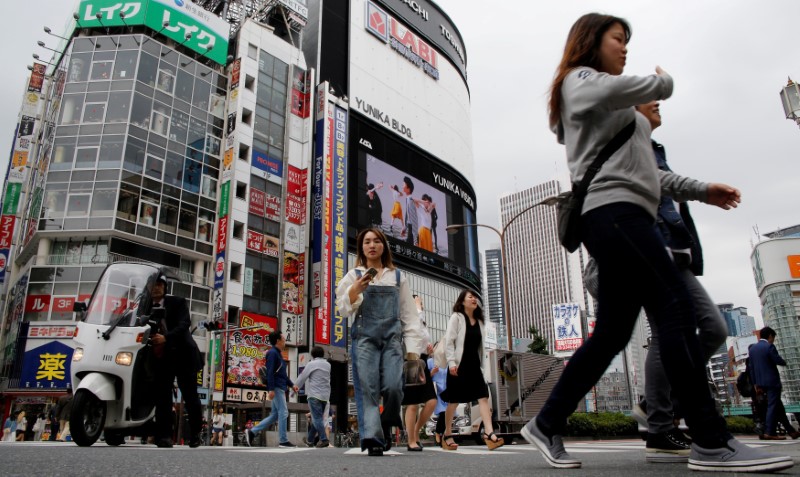By Leika Kihara
TOKYO (Reuters) - Japan's core consumer prices rose 0.4 percent in May from a year earlier, marking the fifth straight month of gains and offering the central bank some hope a strengthening economy will gradually lift inflation toward its ambitious 2 percent target.
But recent declines in oil costs and stubbornly slow wage growth could cloud the outlook and force the Bank of Japan next month to cut its rosy inflation projections yet again, some analysts say.
Separate data showed household spending fell 0.1 percent in May from a year earlier even as job availability was at its highest in 43 years, a sign that the tightening job market has yet to give a lasting boost to wages and consumption.
Japan's jobless rate unexpectedly rose to 3.1 percent in May, while the availability of jobs rose for the third straight month to reach the highest since February 1974, data from the Ministry of Internal Affairs and Communications showed.
The government said May's rise in the unemployment rate was the first increase since November last year and was due largely to workers resigning to seek better jobs and new entrants joining the labor market.
The rise in the core consumer price index (CPI), which includes oil products but excludes fresh food prices, followed a 0.3 percent gain in April and matched a median market forecast.
Core consumer prices in Tokyo, available a month before the nationwide data, were unchanged in June from a year earlier, government data showed on Friday, against a 0.2 percent gain projected in a Reuters poll.
Japan's economy expanded at an annualized 1.0 percent in the first quarter on robust exports and a boost from private consumption, prompting the BOJ to upgrade its economic assessment in April.
But consumer inflation remains subdued with companies wary of raising their prices for fear of scaring away cost-sensitive households, underscoring the challenge for the BOJ in driving up inflation to its 2 percent target.
The BOJ is set to upgrade its economic assessment again but cut its inflation forecast at a quarterly review of its projections in July, sources have told Reuters.

After three years of heavy asset buying failed to drive up inflation, the BOJ revamped its policy framework last year to one better suited for a long-term battle to beat deflation.